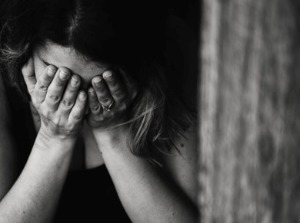Mental Health During Stressful Times
Media Contact
Pam Luker
Phone: (479) 968-7098
Email: pluker@uada.edu

University of Arkansas System Division of Agriculture
Cooperative Extension Service
105 West B St.
Russellville, AR 72801
Mental Health During Stressful Times

September is National Suicide Prevention Month so what better time to talk about mental health than now? The last several months have caused some people to become depressed. It is not uncommon for people to start feeling depressed when they are under stress. Currently, with a worldwide pandemic and racial tensions being shown on televisions and in media every day, it is difficult not to start having negative feelings creep in. There is worry that you or a loved one may become infected with Covid-19, fear of what will become of social unrest, and what impacts long-term social isolation, economic loses, illness, and virtual school will have on ourselves or loved ones. While we are unable to personally control Covid-19 along with the long-term impacts it may have, or racial tensions rising, there are some things we can do to help identify and address mental health issues.
Who is at risk for depression?
First, we need to know who is at risk for depression. According to the NDSU Extension Service people who may be at risk:
- Are socially withdrawn or isolated from others
- Are economically troubled or overwhelmed
- Have limited connection with relatives, friends or supports
- Have experienced recent loss such as a job or family member
- Have been ill or have a progressive or chronic illness
- Have personal experience or a family history of anxiety or depression
- Have undergone significant challenges with family stress, economic stress, or other concerns.
What are signs of depression?
All or most of us can agree that with the current challenging situations we are facing, most of us have some or if not all of these risk factors. Now that we know the risk factors, let’s look at the signs of depression (NDSU Extension Services) so we can identify if we or someone we know may be depressed.
- Difficulty falling asleep
- Sleep more than usual
- Feel less energetic than usual
- Feel nervous or unable to sit still
- Experience a change in appetite or weight
- Feel sad or blue most of the day nearly every day
- Have problems concentrating
- Lose interest in things that you used to enjoy
- Think about suicide
What do I do if I am depressed?
Let’s look at what the Upper Midwest Agricultural Safety and Health Center says you can do if you recognized these signs in yourself or someone else. If you think you may be experiencing the about signs of depression you can do the following:
- Reach out to a loved one. Talk to them about how you are feeling.
- Talk to your friends, clergy or medical provider.
- Reach out to a mental health provider.
What do I do if I think someone I know is depressed?
If you think someone you know may be experiencing signs of depression:
- Listen attentively and without judgement. Try to understand where they are coming from.
- Share your concerns about his/her behavior, mood, appearance, etc. Ask questions about any changes you observe.
- Encourage them to reach out/tell a friend.
Who do I call if I am suicidal?
If you or someone else have feelings of suicide, you can reach the suicide hotline at 1-800-273-8255. They are available 24/7 and the call is free and confidential.
Where can I get more information?
For more research-based information about mental health or Covid-19, please contact Pamela Luker, Pope County Family & Consumer Sciences Agent at 479-968-7098 or pluker@uada.edu.
Resources:
https://www.uaex.uada.edu/life-skills-wellness/personal-family-well-being/default.aspx
http://umash.umn.edu/about-the-center/
https://www.ag.ndsu.edu/cff/resources-for-emotional-and-mental-health